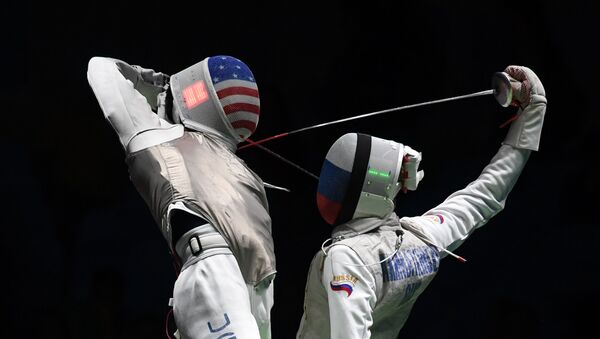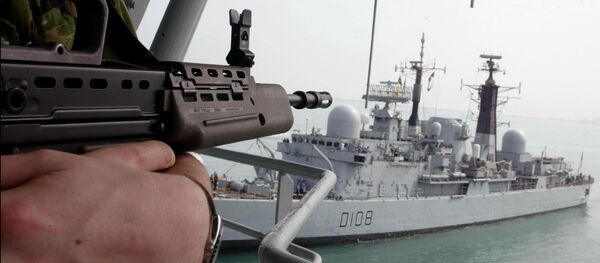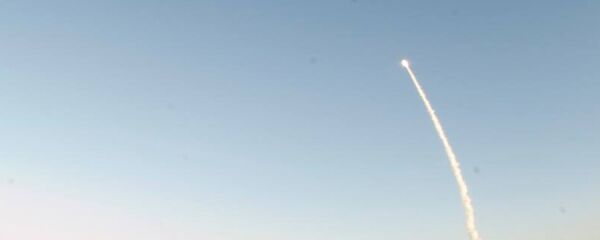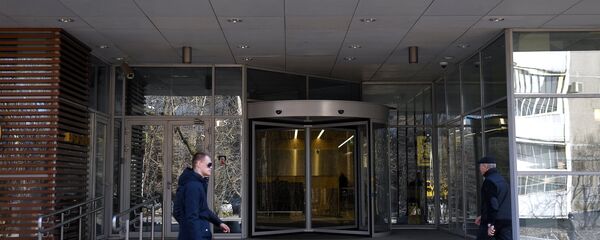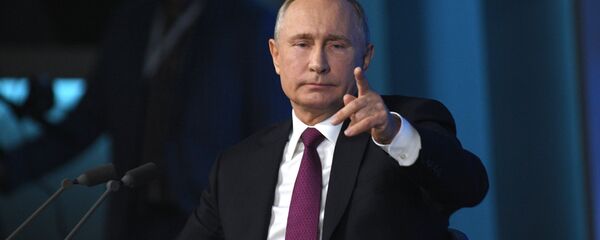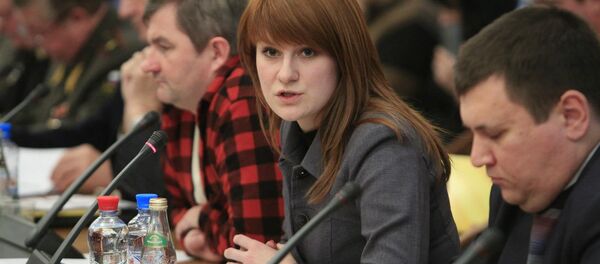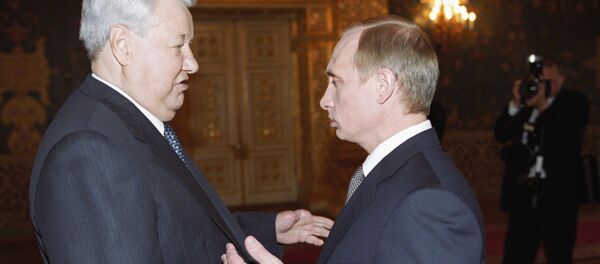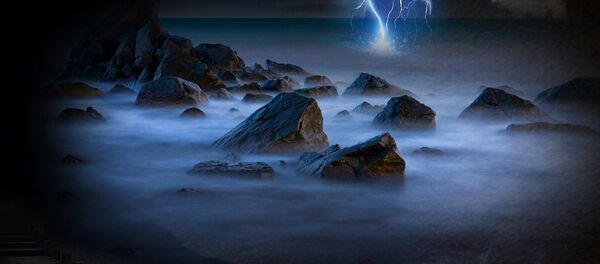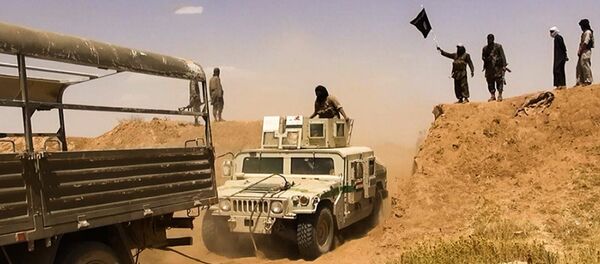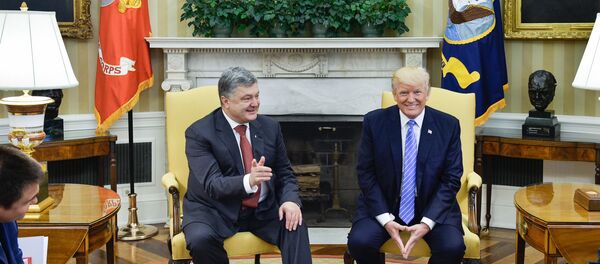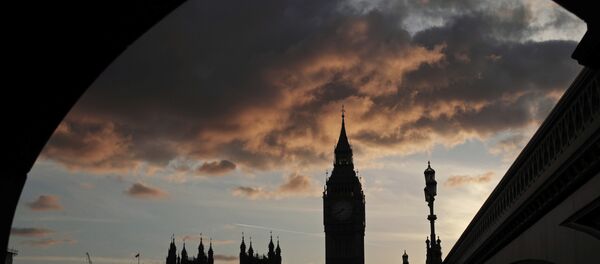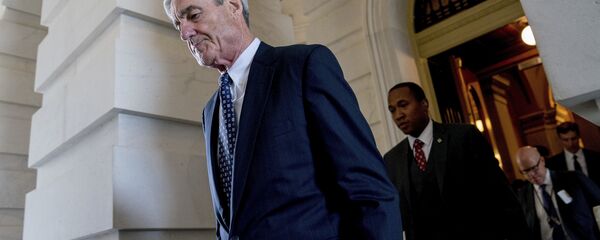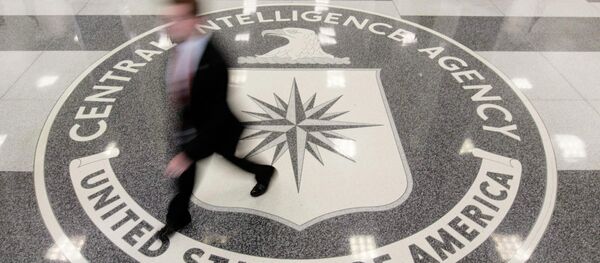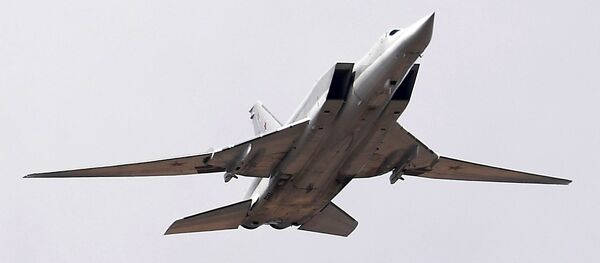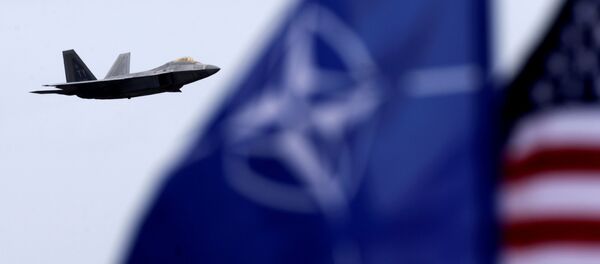In this interview Sputnik asks for his thoughts on what has been termed the new Cold War, the Ukraine conflict and new leaked Integrity Initiative documents which expose the extent of UK involvement with Ukraine dating back to 2014 coup. He explains how close we are to a full-scale conflict between Russia and the West, and why it is that this Cold War is more dangerous than the last one.
Sputnik: Why do we find ourselves once again in a ‘Cold War’ with Russia when we don’t have the ideological confrontation between Communism and Capitalism which essentially gave the context for the Cold war?
Stephen F Cohen: So we have to have a little history here.
I would say almost 15 years ago I began warning we were headed towards a new Cold War with post-Soviet Russia this time and generally speaking that analysis that I was offering was dismissed, partly on the grounds that you just mentioned, that the old Cold War had been ideological.
There was a famous Russian philosopher, Alexander Zinoviev, who once said ‘They were shooting at communism, but they were hitting Russia’. And this whole question of what really drove the Cold War remains a subject of dispute in the academic literature. As for what I’ve been calling the new Cold War; when I first began warning about it, it’s true, the ideological aspects of it were not terribly evident. But today they evidently are, at least on the western side, certainly in the UK and the United States, where Russia or ‘Putin’s Russia’ as they call it is accused of being ideologically a bastion of reactionary, anti-modern, ant-politically-correct thinking, and using this alleged ideological banner to attract allies around the world, including Europe.
There’s no doubting that today, whenever we look at the polemics, that the new Cold War has acquired an evident ideological component.
Sputnik: You have said that the Cold war we are in just now is more dangerous than the previous one — why did you say that — surely the situation cannot be compared with tense periods such as during the Cuban missile crisis?
Stephen F Cohen: So here’s how this happened in my mind and I spend not as much time as I used to in Russia, but enough to, and I read the media and I stay in touch with debates there, and of course I live in the United States, in New York and follow what Washington says and does.
This seems to be increasingly more dangerous that the preceding one. In the book – and it’s a relatively small book, and it’s for general readers, not for academics – I give 8-10 reasons why the new Cold War has become or is becoming more dangerous. Leave aside the Cuban missile crisis of 1962 just for one second – because I think you’re right, that’s the touch down – but why is it more dangerous?
I’ll just mention a couple of reasons- and I think there are a lot – but the two main ones. Geopolitically, geographically the 40-year Cold War had its political epicentre very far from the Soviet Union, very far from Russia at least, in Berlin; everybody understood that the wall that divided Berlin was driving the politics of the Cold War.
Today, and think about it, and people who are listening should look at a map, the new Cold War is unfolding on Russia’s own borders – whether it’s in the north Baltic area – in the small nations of Eastern Europe where NATO is undertaking an unprecedented military build-up (there’s been no such build-up on Russia’s western borders since the Nazi invasion of 1941 — this is beyond dramatic, this is cause for grave alarm), all the way down to Ukraine, and we don’t need to tell our listeners what’s going on in Ukraine.
So nothing like this, so close to Russia occurred. And then there’s one other thing. In my lifetime, which embraced a sizeable part of the old Cold War;
American leaders didn’t hesitate to negotiate with Soviet Communist leaders: Krushchev, Brezhnev, all the way up to Gorbachev. I mean they had summits, they had nuclear arms agreements; it’s true they denounced them as communist, but in the realpolitik of Cold War diplomacy they were treated as legitimate negotiating partners. But look what we have with Vladimir Putin now – the leader of Russia. He is so demonised in the United States – and we’ve seen this since Trump came to the presidency that any dealings with Putin are treated as a crime.
And if you think I exaggerate, remember what happened in July of this year. Trump went to Helsinki to have a perfectly standard, ritualistic, summit meeting with Putin, of the kind that every American President had had with a Kremlin leader since Roosevelt met Stalin or in modern times, Eisenhower met with Khrushchev.
Sputnik: Obviously there has been a gradual deterioration in relations between Russia and the West — what chronological point do you think marks the beginning of this decline?
Stephen F Cohen: I think you understate it – I don’t mean to criticize you – but I see the situation as more dramatic. Let me put it like this: during the 40 year Cold War, Moscow and Washington created all sorts of mechanisms of cooperation, from cultural exchanges to arms control agreements, nuclear agreements – control and reduction — you would agree with that, we could go on and list them all.
Today before our eyes, those mechanisms and the psychology of those mechanisms of cooperation – are being shredded. Bush left the most important treaty back in 2002 — the anti-missile ballistic treaty – so now we have missile defence installations around Russia, that’s exceedingly dangerous. Or to take another example I don’t know if you’ve followed the case of this woman Butina in the US who was arrested? Maybe they’ve got something on her they haven’t told us but just based on the evidence they have produced she was a peacenik – she wanted to promote the Russian point of view in a friendly way, in the United States. She got a Masters degree at a university in Washington, she was there two years; in addition to compiling an excellent record all her fellow classmates said in every class she was pro-Putin, pro-Kremlin, she was a Russian, she was a patriot.
So the whole idea of cultural exchanges, of Americans going to Moscow and promoting the American point of view, and Russians coming to the United States was a given, we had formalised exchanges. Now it’s some kind of crime. So my point is, the mechanisms that protected us during the Cold War are being shredded today, as the dangers grow.
Stephen F Cohen: Or, to take your point…let me begin at the beginning. Why has it come to this, when Russia is no longer Soviet or Communist, when the Russian political establishment –whether it’s entirely true or not – claim to have the same political, social and economic system as we have – some form of capitalism, and which, at least for a decade or more, literally begged to become a constituent part of the West.
And yet here we are, with Russia turning away from the West and the West pushing Russia towards the East. Why did that happen? So, it’s probably a question too big for my brain. And there are people such as John Moorsheimer at the University of Chicago – who thinks about relations between great powers, he’s a very wise man, he’s not a Russia expert — but what he sees in this Cold War is a pattern of behaviour not atypical historically of how great powers have gotten into conflict: we trespassed on Russia’s geopolitical turf, Russia did things we felt were objectionable, both had vested interests. So his explanation is international theory. I have a different explanation, and I don’t insist on it. To a certain extent, it’s cultural or political-psychological.
It ended badly with Russia in economic meltdown in 1998, the rise of Putin who was not so much at the moment the anti-Yeltsin but the not-Yeltsin; clearly a very different kind of political figure with different perspectives. And we know this whole history. As Putin emerges, eventually he gives a speech in Munich in 2007 where he says the West is transgressing on Russia, it’s turned the relationship into a one-way street, it’s gonna stop, there are going to be no more unilateral concessions.
The West, the United States is shocked, they say Putin is some kind of communist or Soviet or Cold warrior, and all Putin is saying please stop, we want to be your partner but it has to be a two-way street. So how did it come to this? Well one plausible explanation is this idea…I don’t like the word hegemony because I’m not sure what it means – but that America should lead the world, institutionally, politically, economically, diplomatically and maybe, militarily, because we fight a lot of wars in this spirit.
It was a kind of religious faith at the end of the Soviet Union, the great bipolar world, the great competitor seemed to be gone, and then things turned out very differently. I think it was a shock as this unfolded under Putin in Washington, that this is not what it’s supposed to be, this is thwarting or incompatible with, the way the American political, economic media elite sees the rightful role of the United States and so a demonization of Putin begins to emerge.
Think what he’s saying. What they were hoping for, because Yeltsin by 1998 had become erratic, he had health problems, he was drinking too much, and yet he represented the kind of Russia that Washington wanted – a compliant junior partner – they had hoped for a sober Yeltsin (after all in their minds Putin was named by Yeltsin to be his successor) and in two years they understood that this had been a misconception. So it was the kind of shock of recognition.
And it’s not just Putin by the way, we always say Putin’s Russia, but it is the team, the kind of attitudes, the kind of views of policy makers in Moscow who came to power with Putin and remained around Putin – it’s not one man, he’s the leader – but it’s this whole different Russia that emerges that is unexpected for Washington produced, I think, this really surreal reaction in presenting Putin as some kind of demon, which he obviously is not.
And then underlying that is the larger issue of Washington’s view that it should lead the world, and it’s not just Russia that’s thwarted that, it’s China, it’s other countries, it’s the emergence…and blame history – nobody did this — of what’s called the multipolar world. This is hard to digest in Washington. It’s a little harder to take it out on China, for the reason you mention, that China has an enormous trade relationship with the US.
Sputnik: You talk about the Ukraine conflict in your book and how it could be an area of escalation. Indeed it’s been shown recently in leaked documents that the UK MoD has been interacting with Ukrainian special services on some level and there were even discussions about blowing up Sevastopol harbour just a few days before the Crimean referendum vote in 2014. There are 800 UK instructors alone in Ukraine currently and Royal Navy warships in the area. We also recently had this provocation in the Kerch strait and Russia says it is expecting further provocations from Ukraine. What do you think the chances are of this Cold War escalating into a hot war over Ukraine?
Stephen F Cohen: If I had to rank the two hottest spots, the two new Cold War fronts that are most fraught with hot war between Russia and the United States, a couple of months ago I would have pointed to Syria because American war planes and Russian war planes and other war planes are flying over Syria in a rather limited area and the chances for mishaps are clear.
We saw this when I think it was Israeli war planes shot down Russian war planes and killed the crew and that was a very dangerous moment. Today, I would – I don’t know if you’re asserting this or asking – but I would agree that Ukraine is the hottest of hot spots for a number of reasons.
The United States has not embraced the government of Syria, Assad, the United States has very much embraced Kiev – the US sees Kiev, I don’t know if you can say its proxy, but certainly as its client state. So this is politically eyeball to eyeball with Russia. Secondly, the proximity of Ukraine, whether we’re talking about land mass or waters or Crimea, is so close to Russia, that even the smallest incident – which that Kerch bridge was – now we don’t know, I believe it to be the case, that this was a provocation by President Poroshenko of Ukraine who had his political reasons for wanting to create a crisis. But you mentioned something I don’t know about – I think you mentioned it – that somebody has to study carefully. What happened in 2014 that led the Kremlin – for the first time, because it hadn’t come up in all the years since the end of the Soviet Union to seriously consider annexing or reuniting with as they say in Russia, Crimea? There are reports, but I’ve not seen documented evidence, that there were western military forces were encroaching in or around Crimea at the time.
We may think that Yanukovych was a rotter, maybe he was, but nevertheless he was democratically constitutionally elected, a new election was coming the next year – why not wait and vote him out – but he was overthrown in a coup. And the Kremlin was in a kind of panic about it because new government was threatening to take this, take that. So they had to react – did they make a bad decision?
We will need all the archive documents, and maybe the evidence that you allude to. Were western forces encroaching on Crimea in say January, February, March, April 2014? I don’t think we know yet, it’s not impossible. But this, when we think back to what happened in 2014, the crisis of that moment, and how politics led to a very radical outcome – the end of Ukrainian sovereignty over Crimea – we see the same situation present today in various ways and we can understand how Ukraine can lead to war.
Stephen F Cohen: Well I don’t know your age – I’m older than you for sure – but this questions reminds me and I don’t know if you know the old American film Casablanca? Set in Casablanca during World War Two, when the police chief, who’s skimming all the profits from illegal gambling, says when he’s told there’s gambling ‘I’m shocked, shocked, shocked’. It is mendacity and hypocrisy as Tennessee Williams put it in one of his plays.
This kind of surreptitious, but it’s hardly that, because you can see it, what is it called? Ideological warfare, cultural warfare; using journalists, using academics as carriers of one side’s point of view over the other’s, was a common practice during the old Cold War. I don’t know if you’ve heard of the Congress of Cultural Freedom which published a lot of very influential journals – the most influential being ‘Encounter’ which was published in London – turned out it was financed by the CIA. Was anyone surprised? Probably not. Was anybody unhappy? Probably so. Because a lot of intellectuals leant themselves to these pursuits without knowing where the money was coming from. So we’re seeing that again today.
Projects devised by big brains, who have no understanding of history and politics and what moves people or elites or countries to act. To get a lot of funding – it’s a very lucrative business – there’s always money for counter-disinformation. The idea that we have to fight Russian disinformation is now very profitable in the United States – everybody will give you money for this. And if you don’t have a particularly big brain, it’s a good way to pretend you’re an intellectual and get paid for it. It’s not good, because both journalists and academics should be plainly seen for what they plainly are.
Russian academics, Russian intellectuals, Russian journalists. We take this view of objectivity as a kind of pretence for surreptitious occupations.
I don’t like it, partly because you don’t know with whom you’re dealing with half the time. I never take any money from anyone because I want to be completely independent, I don’t even take money for travel expenses.
But what it really is, is another piece of evidence for my thesis, that we are in a new Cold War, because this is exactly what was done during the last Cold War. Is it a bad thing? It’s a bad thing in the sense that professions are tainted, professions that are supposed to be objective are tainted by these projects. On the other hand I don’t see why the West should fear a clash of ideas as they used to be called. The more public controversy over ideas the less chance of war I would say.
Sputnik: with Russia as ‘dangerous’ — is this not perhaps a key problem — the fact that we don’t have the same level of dialogue taking place between Russia and the West?
Stephen F Cohen: Well you’re a bit far from America. It’s much worse than that. I don’t know if you’ve been following this phenomenon that’s called Russiagate, have you? It’s in the newspapers daily, and it’s not just the Butina affair, where she was a kind of Russian peacenik and she liked guns; American likes guns, it’s not a crime to like guns in the US. But it’s not only Butina, the idea that you should have contact with Russia was earlier considered good because it guarded against misunderstandings.
Whether it was an academic such as myself going to Moscow, living among Russian academics, discussing things, arguing, or whether it was cultural exchanges…but now it emerging as a result of this Russiagate is literally, I’m not exaggerating because court cases are being brought, but certainly the criminalisation of contact with Russia. So stop and think what that means. For fifty, sixty, seventy years, contacts were said to be good – they led to something called understanding.
This is moving now towards these corporate contacts.During the old Cold War, the corporate chiefs who wanted to do business in Soviet Russia such as PepsiCo or oil companies, they were behind Détente.
Today, corporate America is silent. So we will see when this notion that contacts are criminal becomes more widespread, if they will step up. You remember Rex Tillerson, who was head of Exxon Mobile, who negotiated directly with Putin, because you have to in Russia on energy issues, on major ones. Exxon mobile’s big extraction of energy in waters that were very hard to drill in. Very successful deal for Exxon mobile. He becomes briefly Secretary of State under Trump, Russiagate begins and Tillerson is accused of being Putin’s puppet, because there’s a photograph of him shaking Putin’s hand in the Kremlin as they sealed the Exxon mobile deal.
This is preposterous – but that’s a contact worth billions of dollars, that’s not just some harmless academics such as myself going to Moscow as I was two or three weeks ago and speaking to journalists and politicians, and others. So criminalising contacts is very bad, I mean, what’s left? Not contacts of the kind that they’re criminalizing — all that’s left is war.
Stephen F Cohen: So I’ve been disappointed. When Trump ran for the presidency, I didn’t vote for him, but I didn’t support most of his initiatives, but I did support very publicly his call for cooperation with Russia. I heard this as Trump espousing the long Republican tradition for Détente with Russia.
After all modern Détente of the 20th century was done by Republican Presidents. Eisenhower, Nixon, Reagan. So I thought, this is good because the new Cold War has gotten dangerous and we need to support this part of Trump. He’s been unable to do that for reasons that are political in the United States, The Kremlin has been more than willing but Trump stood them up at the altar three times, cancelled three meetings. This is very embarrassing for the Kremlin.
And when I was in Moscow I heard a lot of talk: we’ve had it with Trump, with had it with America, we’ve had it with Washington, we don’t need to deal with them anymore. Well they have to deal with the US as we’re connected by the nuclear existential danger, so they will deal, but the idea that Washington has become unreliable diplomatically is also a first in Cold War history. What could be done? I don’t think it would take an awful lot to walk back this new Cold War to a safe level.
First we promised that NATO would not expand eastward, then when we expanded eastward we said there wouldn’t be any military bases, now there are major military bases being built along Russia’s borders. I would propose – because you can’t kick the new member states out of NATO – that we demilitarize NATO expansion – that means drawing military forces that are along Russia’s borders, back to Germany. The countries would remain members of NATO with all the guarantees, but we need to demilitarize that territory that’s on Russia’s borders.
As for Ukraine, this is more complicated, but there does exist the so-called Minsk accord for resolving the Ukrainian crisis. We all know what the solution is, and that is that Ukraine does not become a member of NATO. That’s what triggered all of this; it was NATO’s move on Ukraine.
A declaration by the US and NATO that Ukraine would never become or be enticed into membership, would eliminate 50 percent of the problems. After that the future of Russia and Ukraine, or at least South-eastern, central Ukraine, the future rests with two things that people don’t think about: economic trade and marriage. There are tens of millions of mixed Ukrainian, Russian families – you know this. I can’t think of a Russian I know well who doesn’t have a Ukrainian grandparent or in-law.
There are 3-4 million Ukrainians who can’t find work in Ukraine, working in Russia, permitted to work in Russia by the Russian authorities and sending their salaries back to Ukraine to support their families. If the craziness of these proxy interventions were to stop, economics and family would solve the problem between Ukraine and Russia, I would think.
To put it differently, the West intervened where angels should not have dared tread and they did that in 2013-14, by trying to ensnare Ukraine away from Russia. Putin argued why away from Russia? Why not a tri-partite agreement? It was economic at that time: Russia-Ukraine-EU. Washington said “no” and that “no” led to where we are today.
Ukraine’s future rests not in a military alliance with Russia or the West, but in a trading, economic life with both Russia and the West. And I don’t think it would be hard to achieve given wise leadership; but there is no wise leadership in Kiev today and there is no wise leadership in Washington.
Views and opinions expressed in this article are those of Stephen F Cohen and do not necessarily reflect those of Sputnik.
